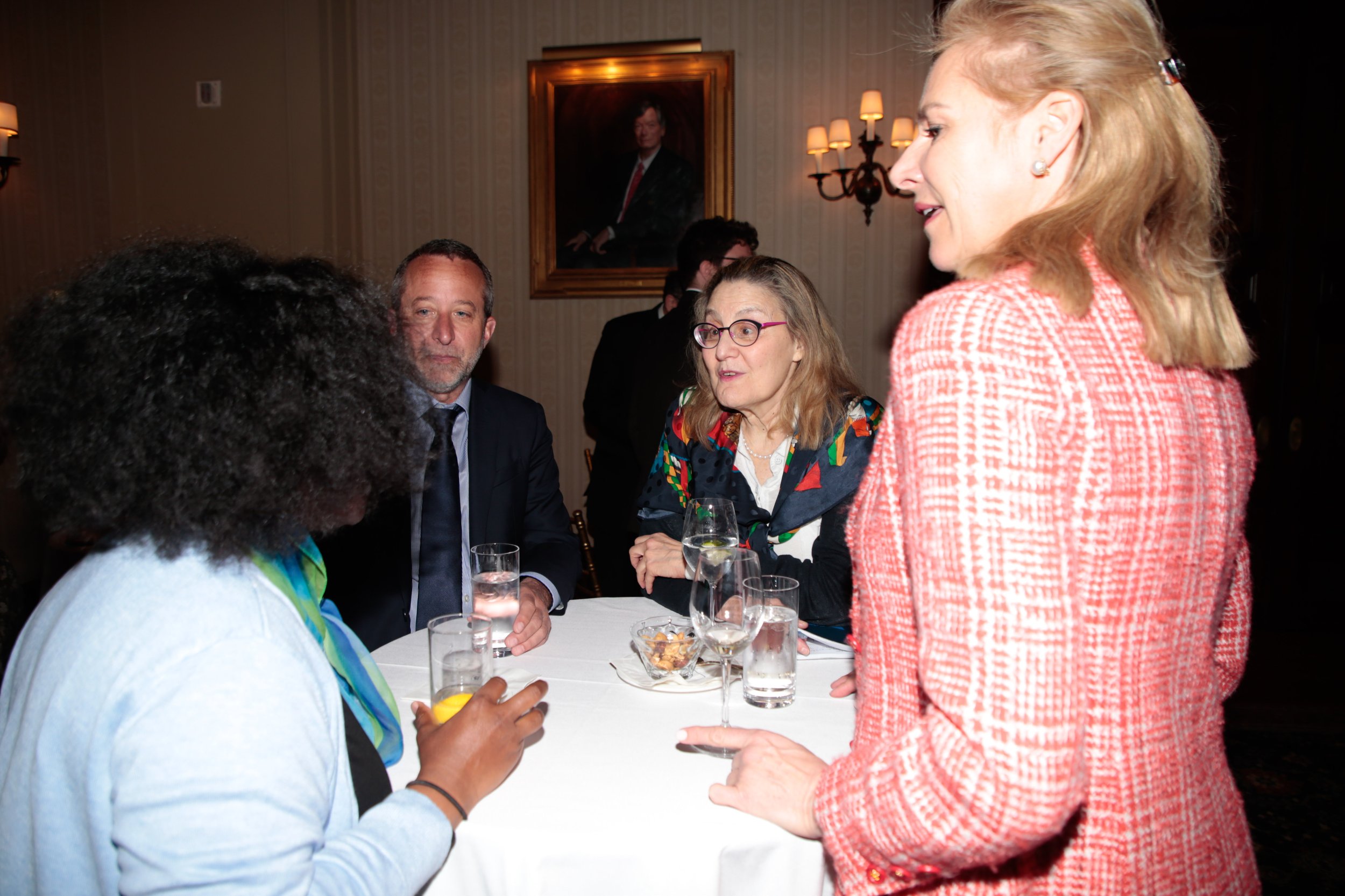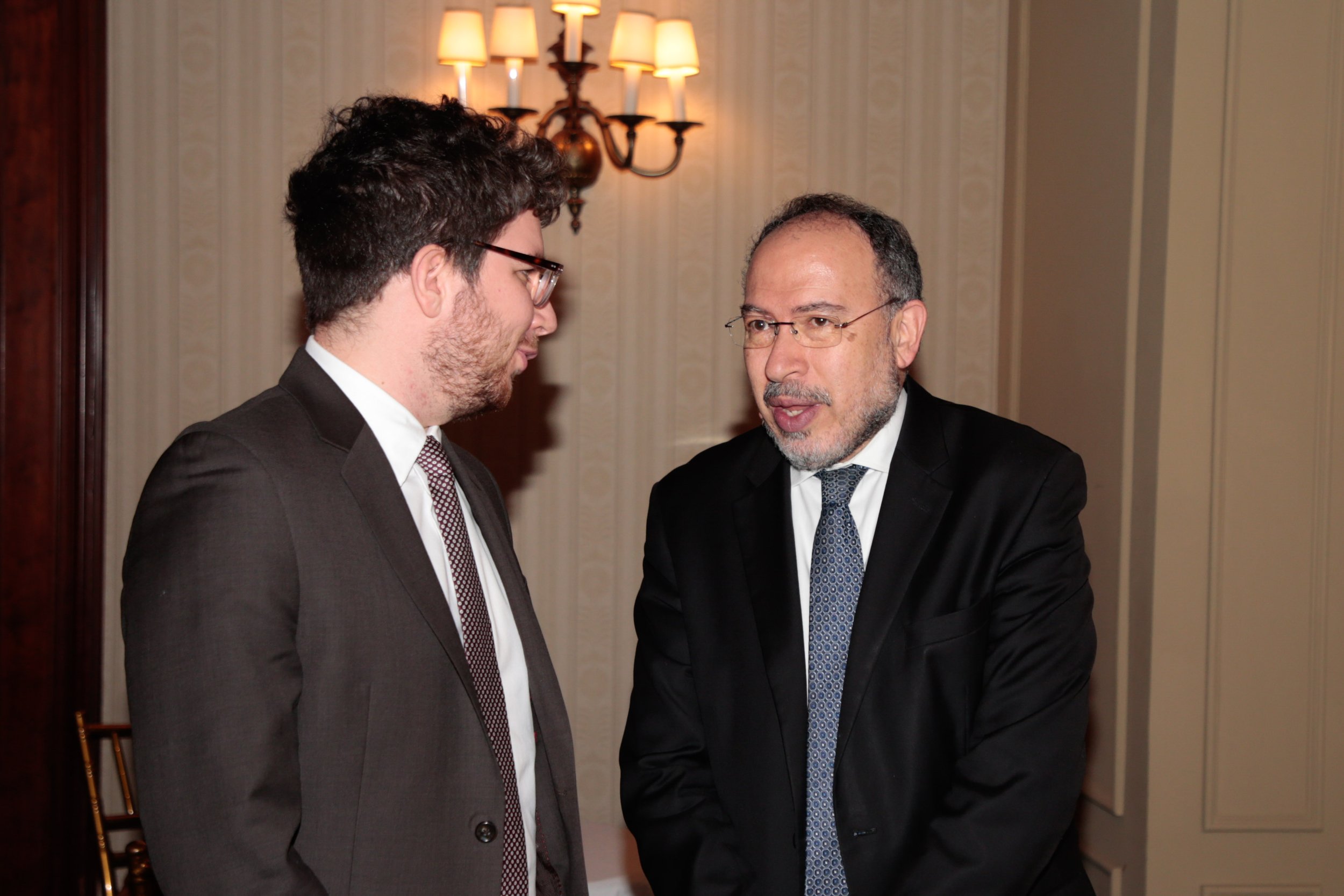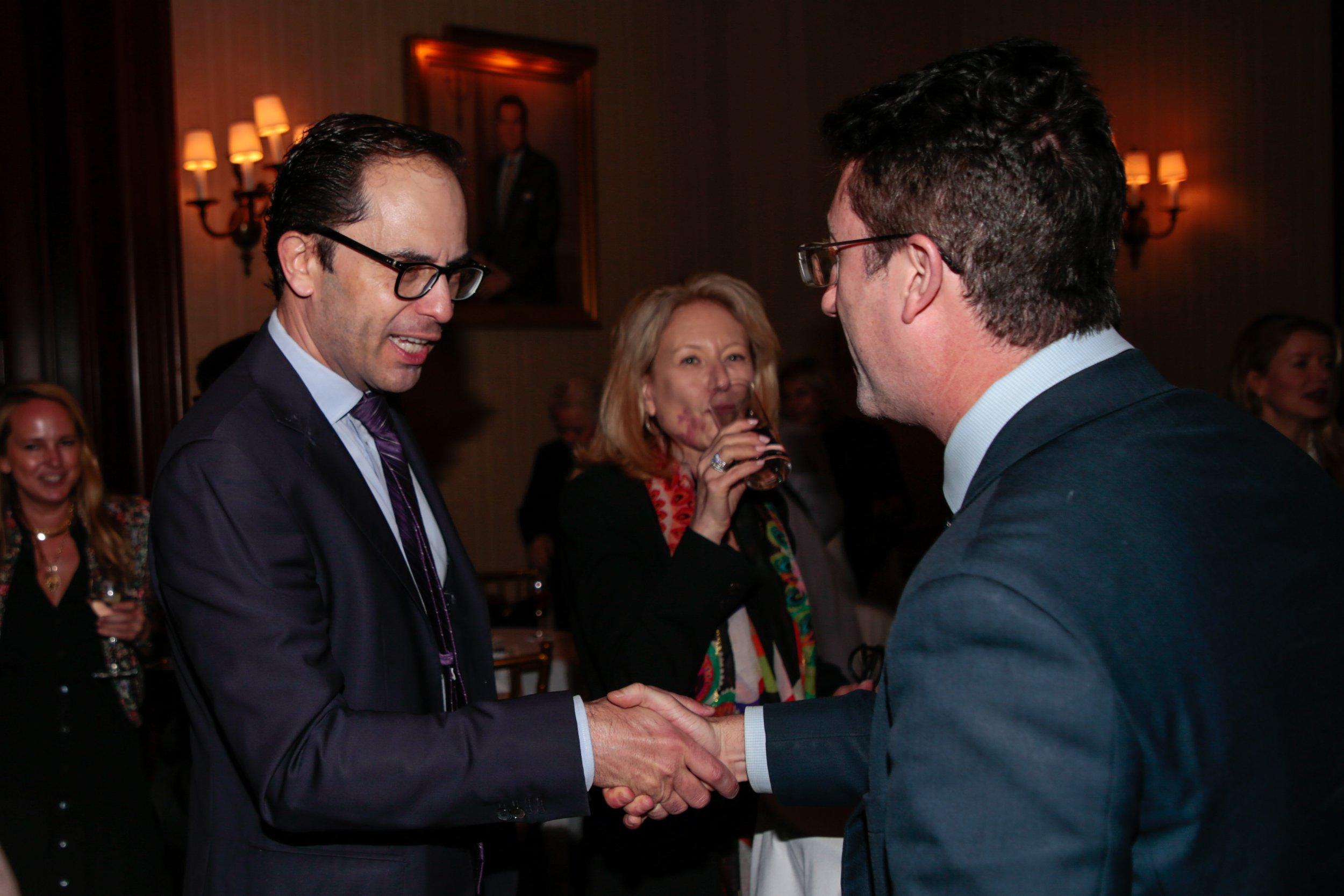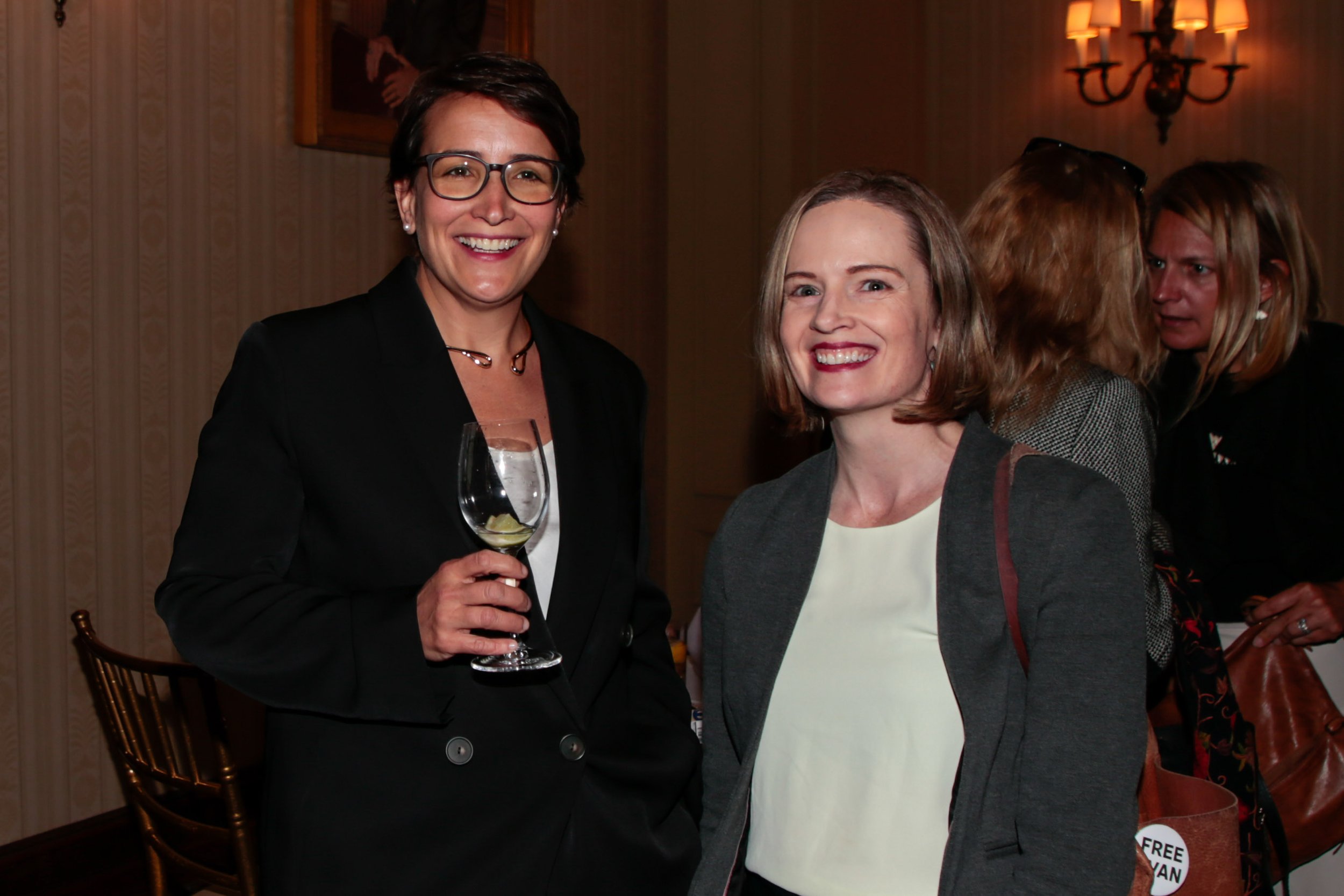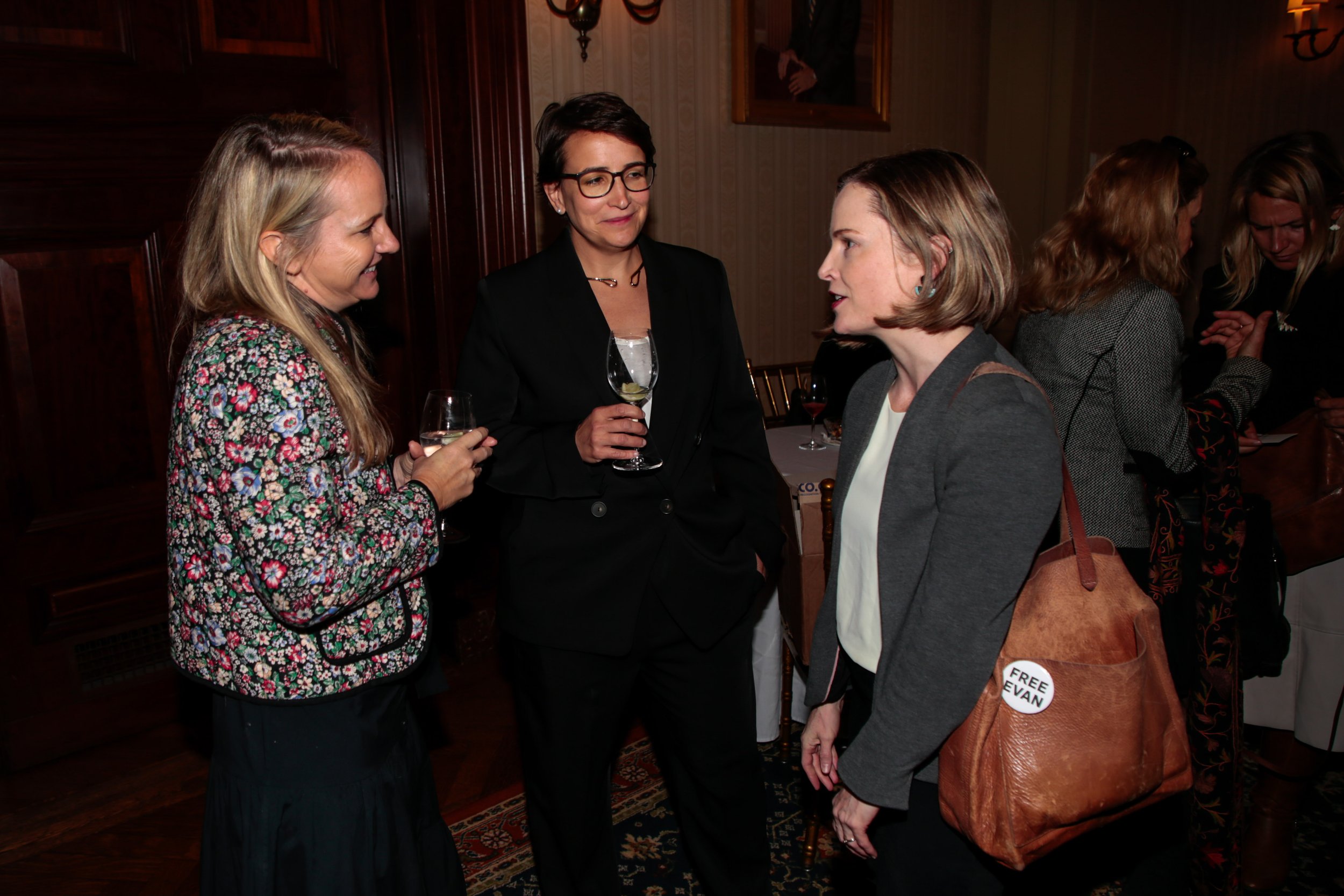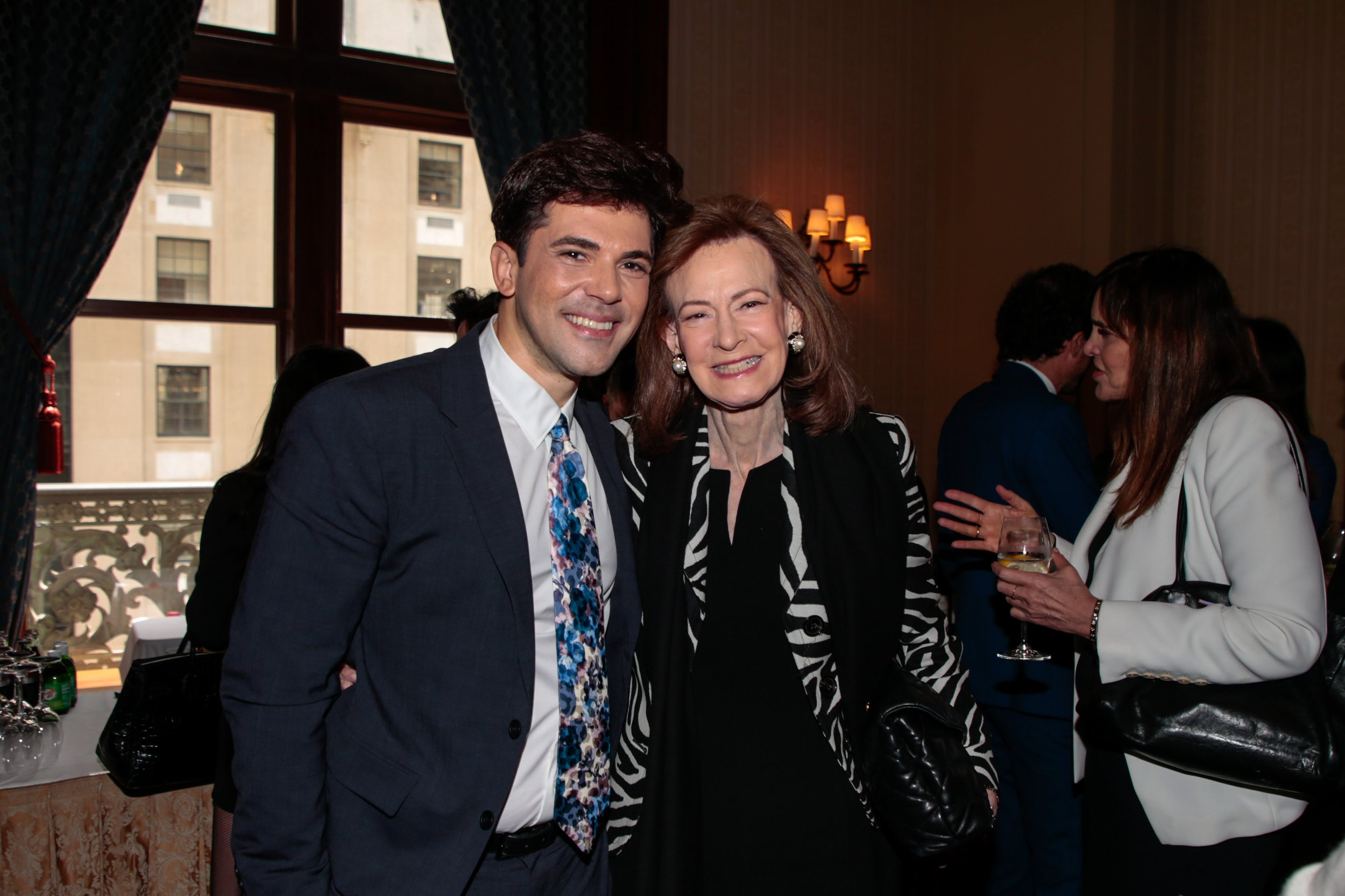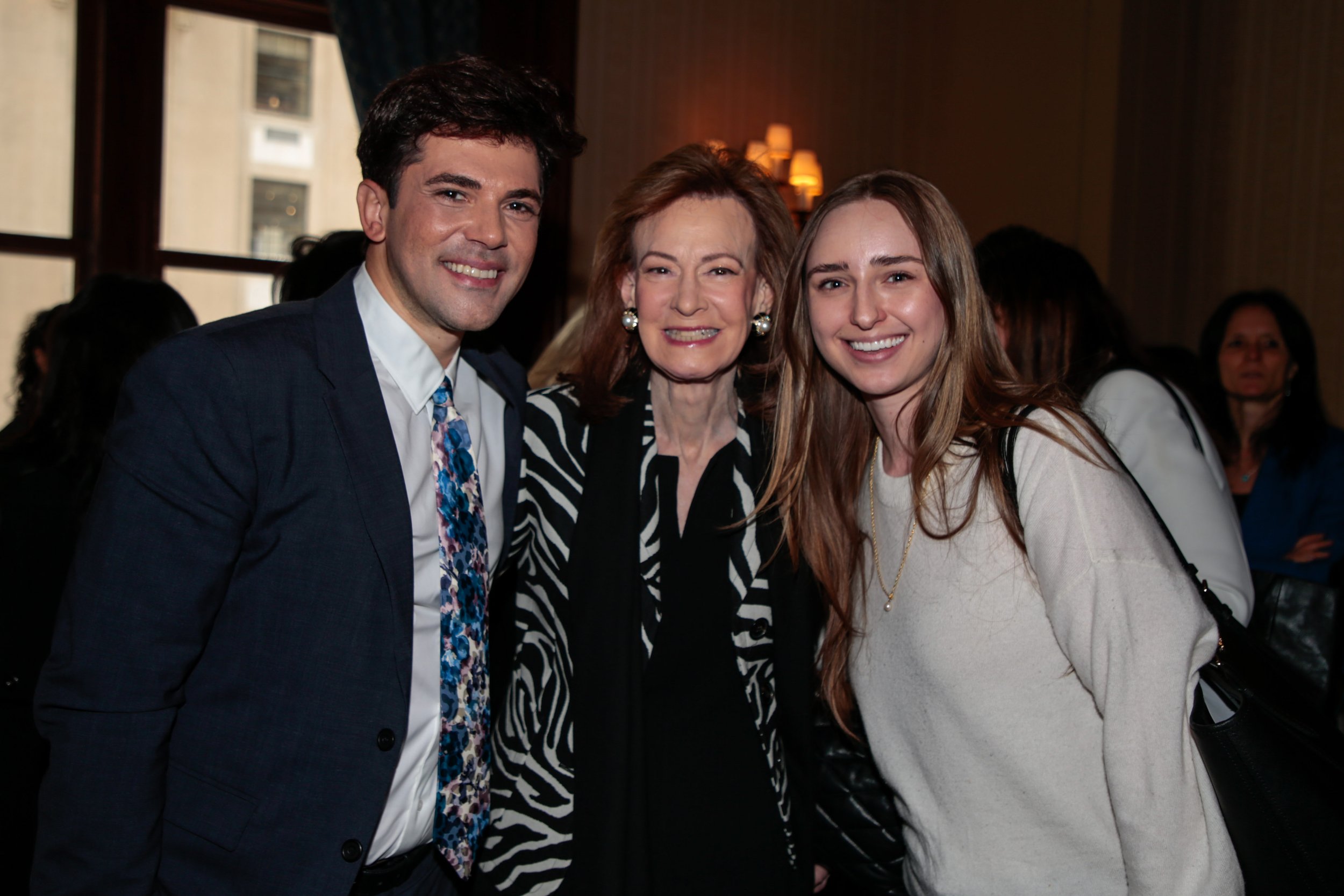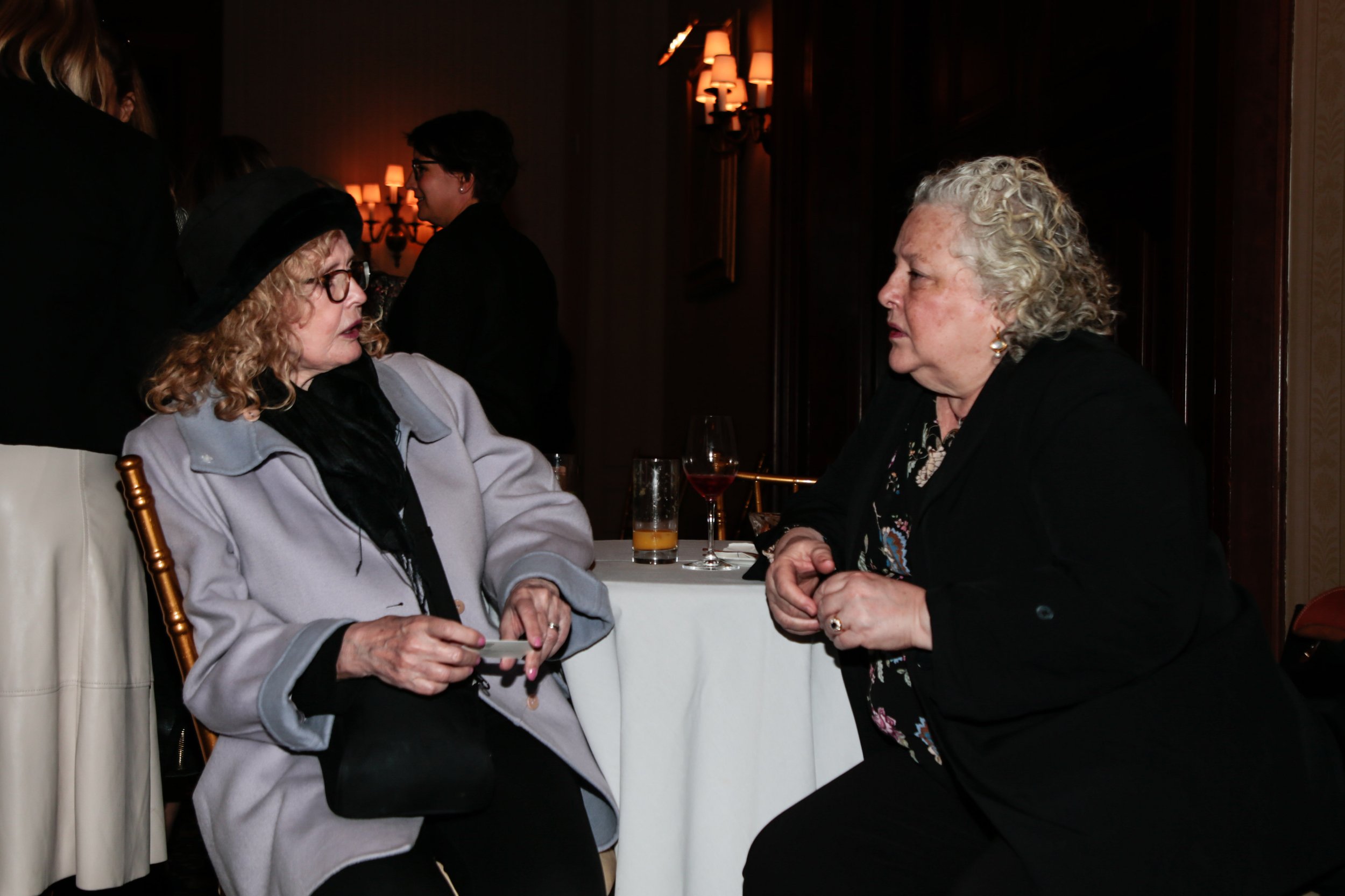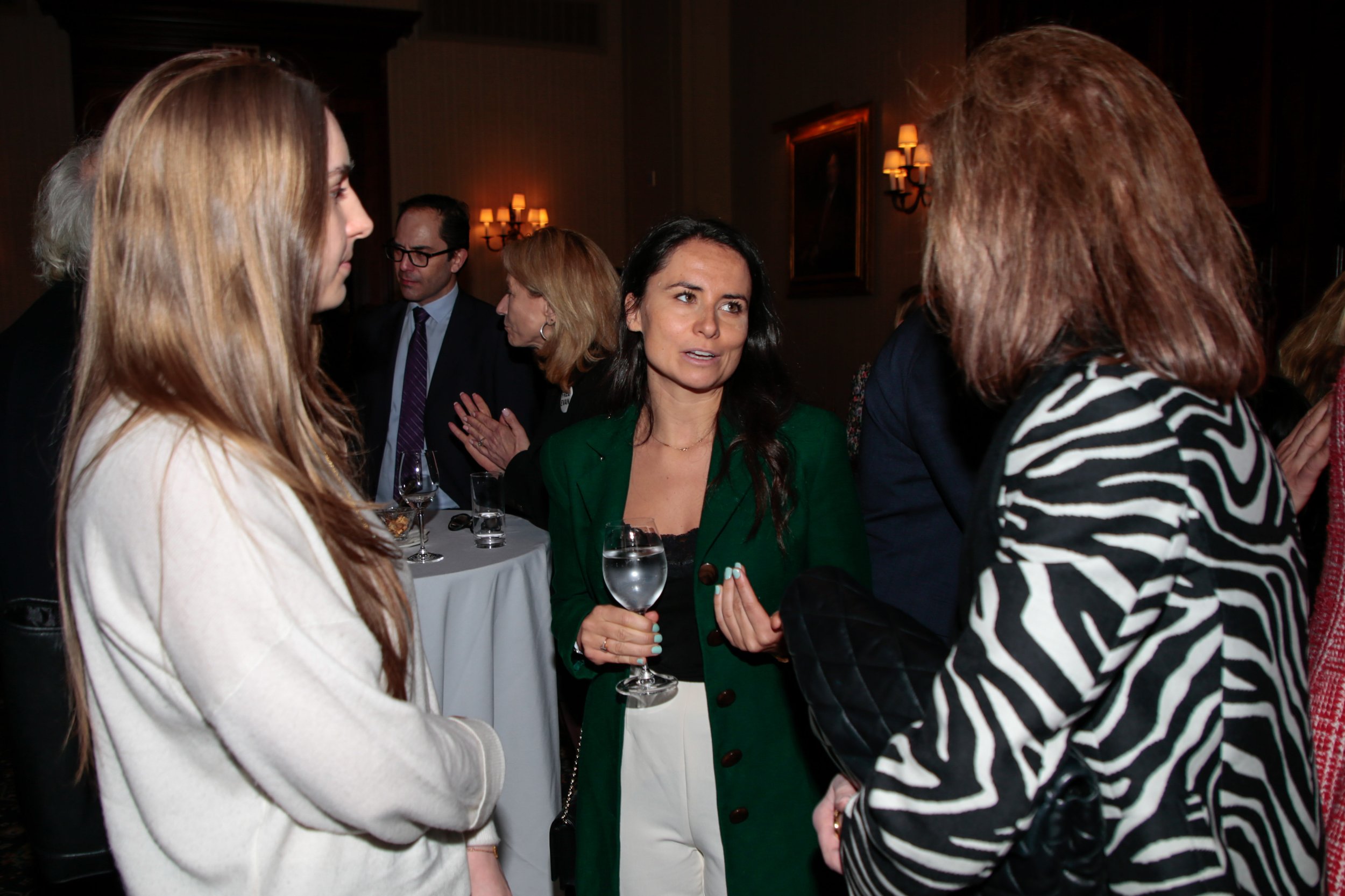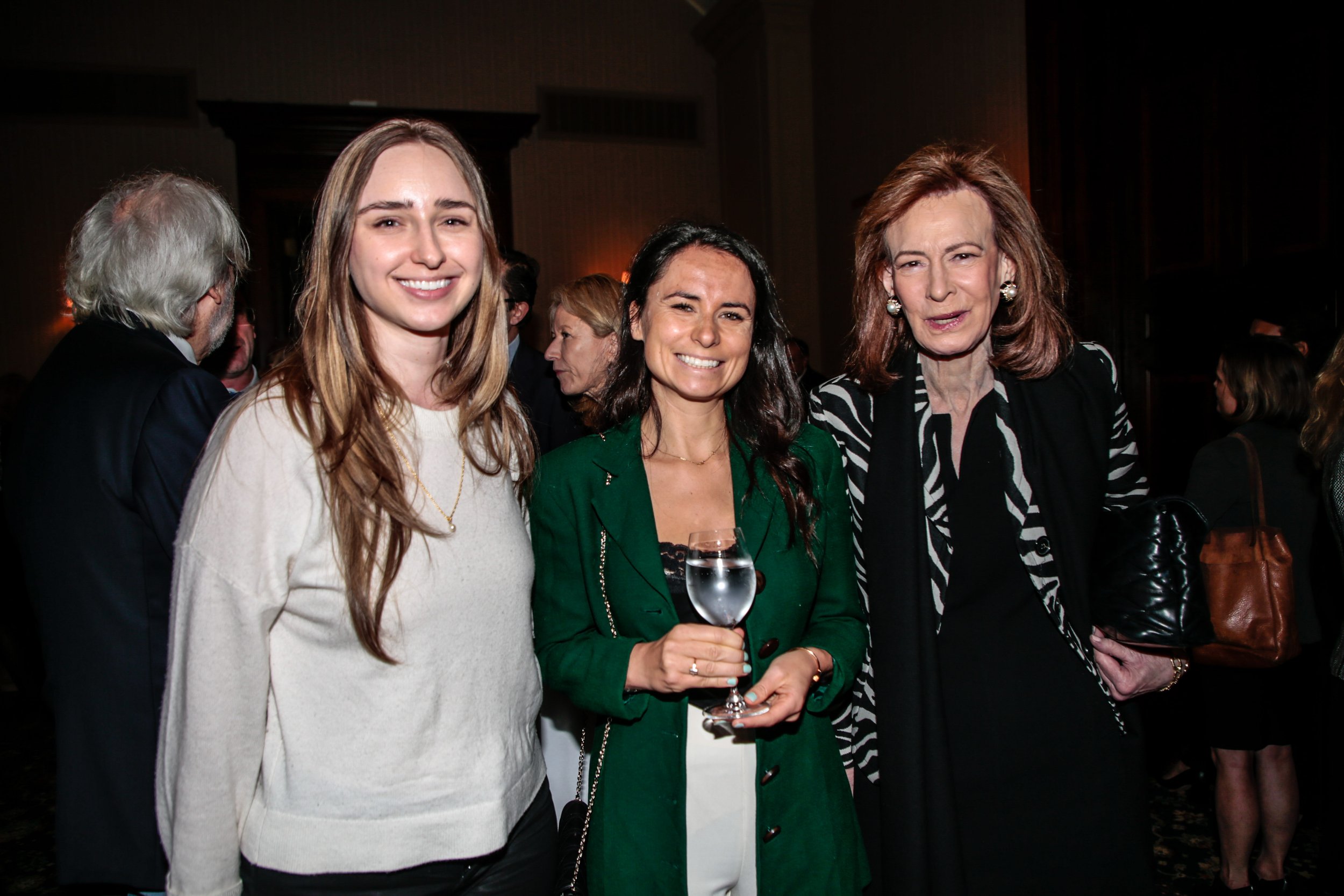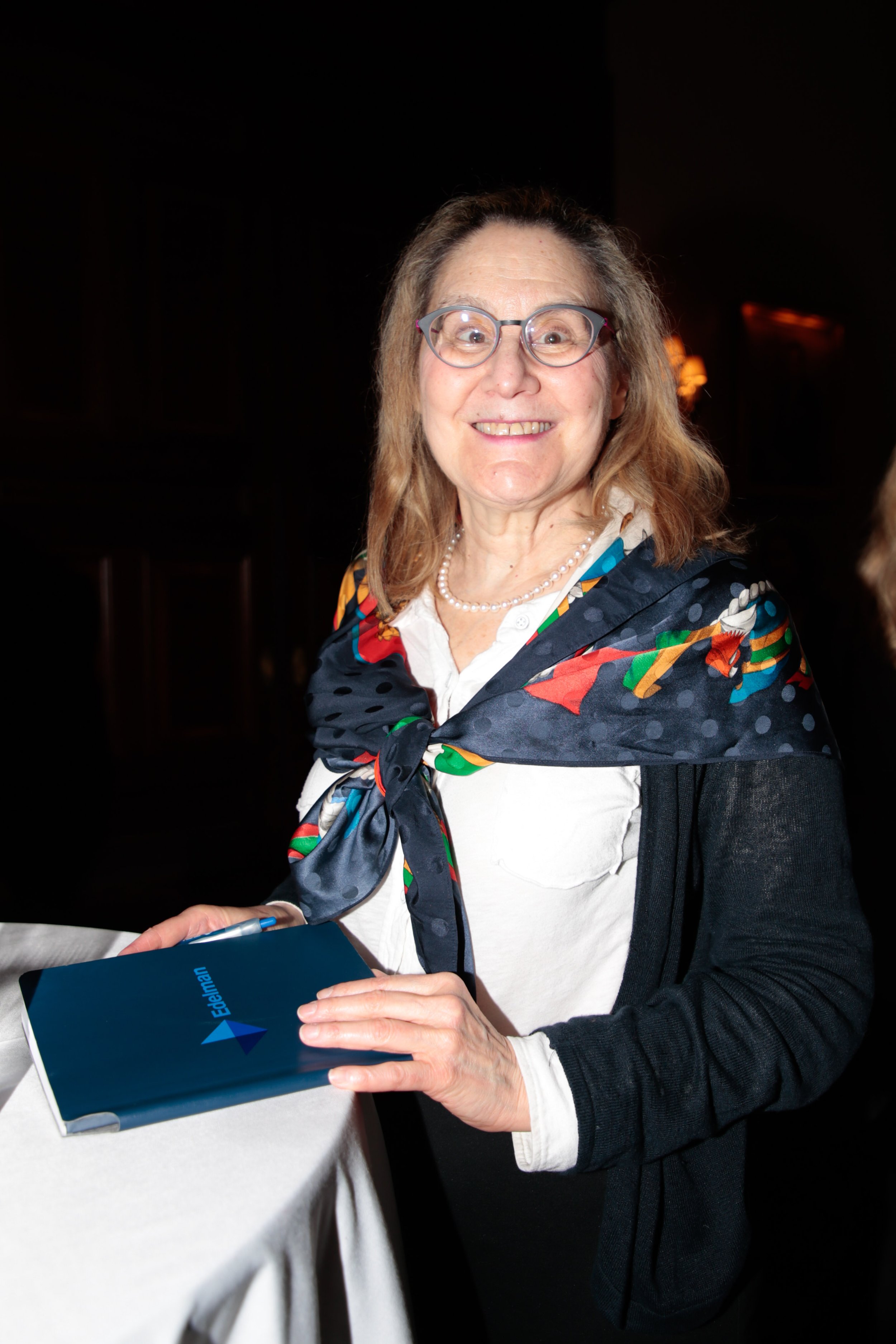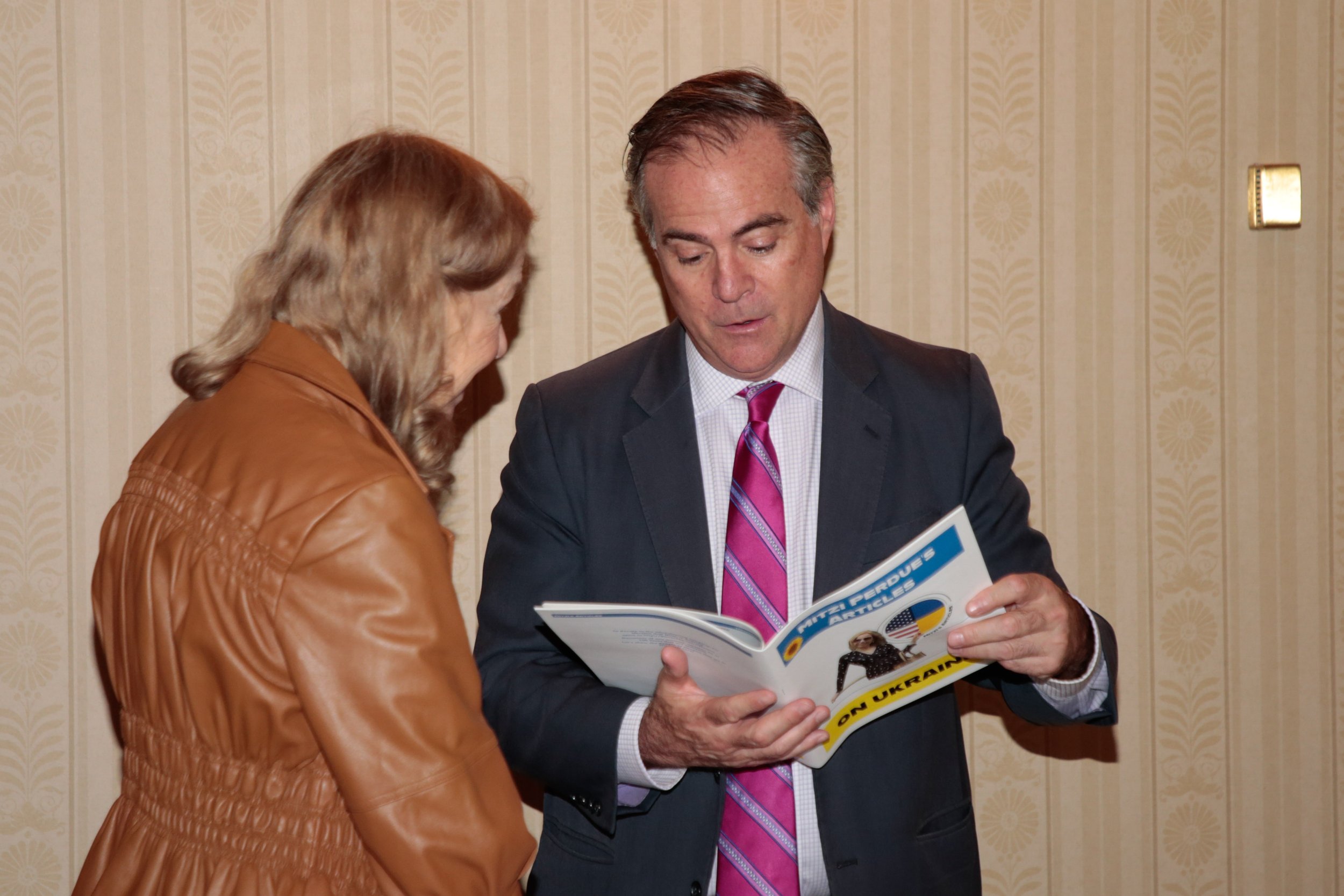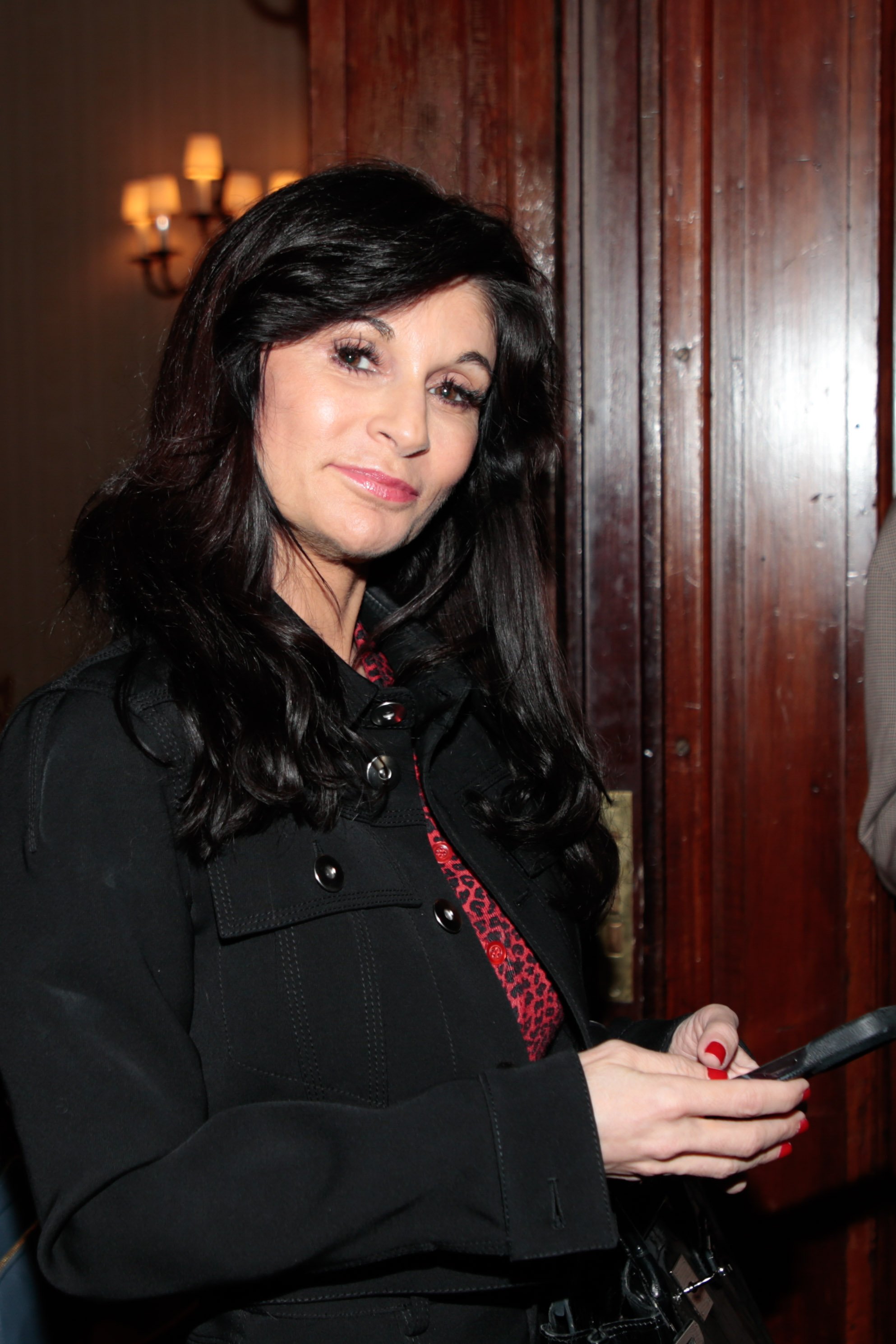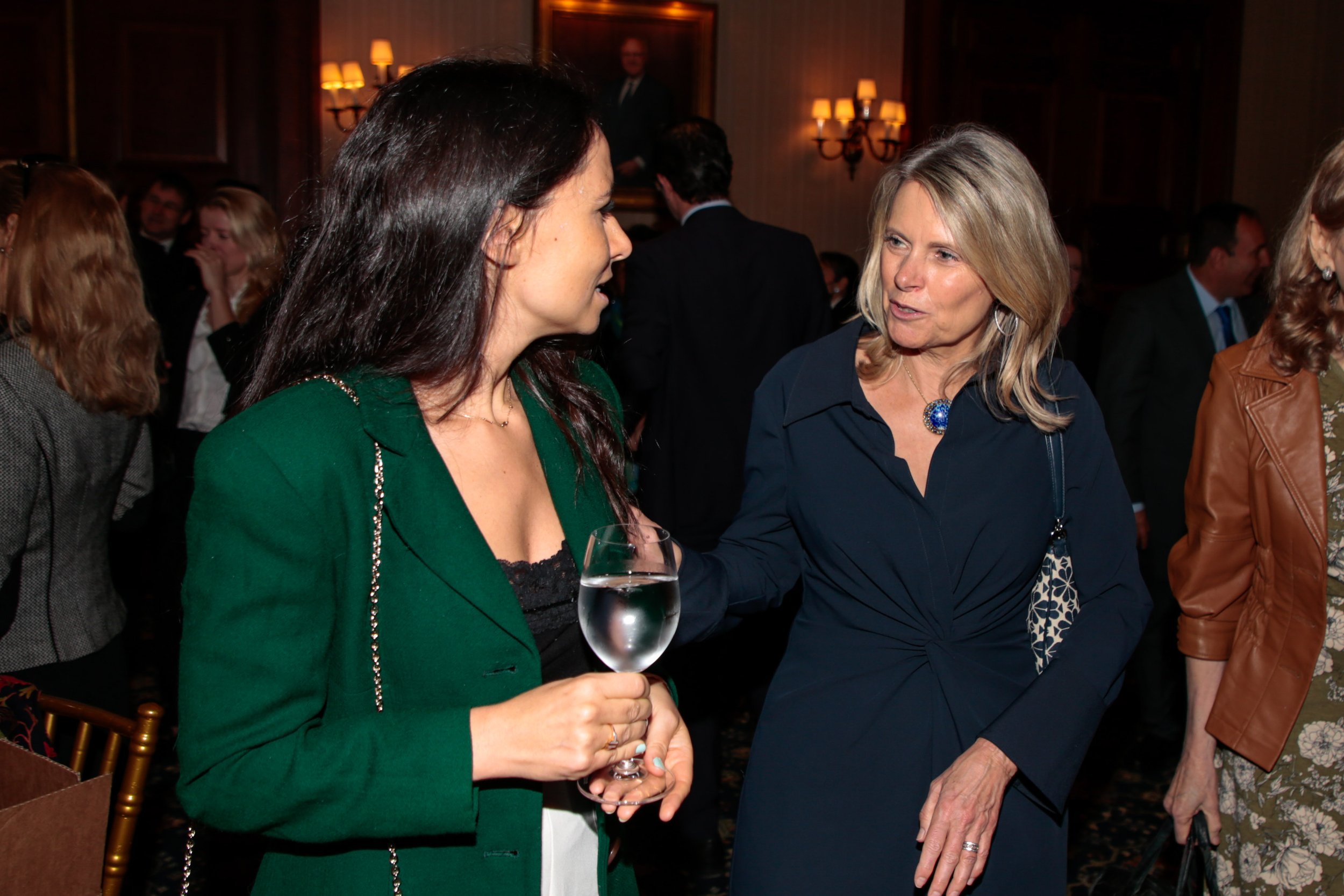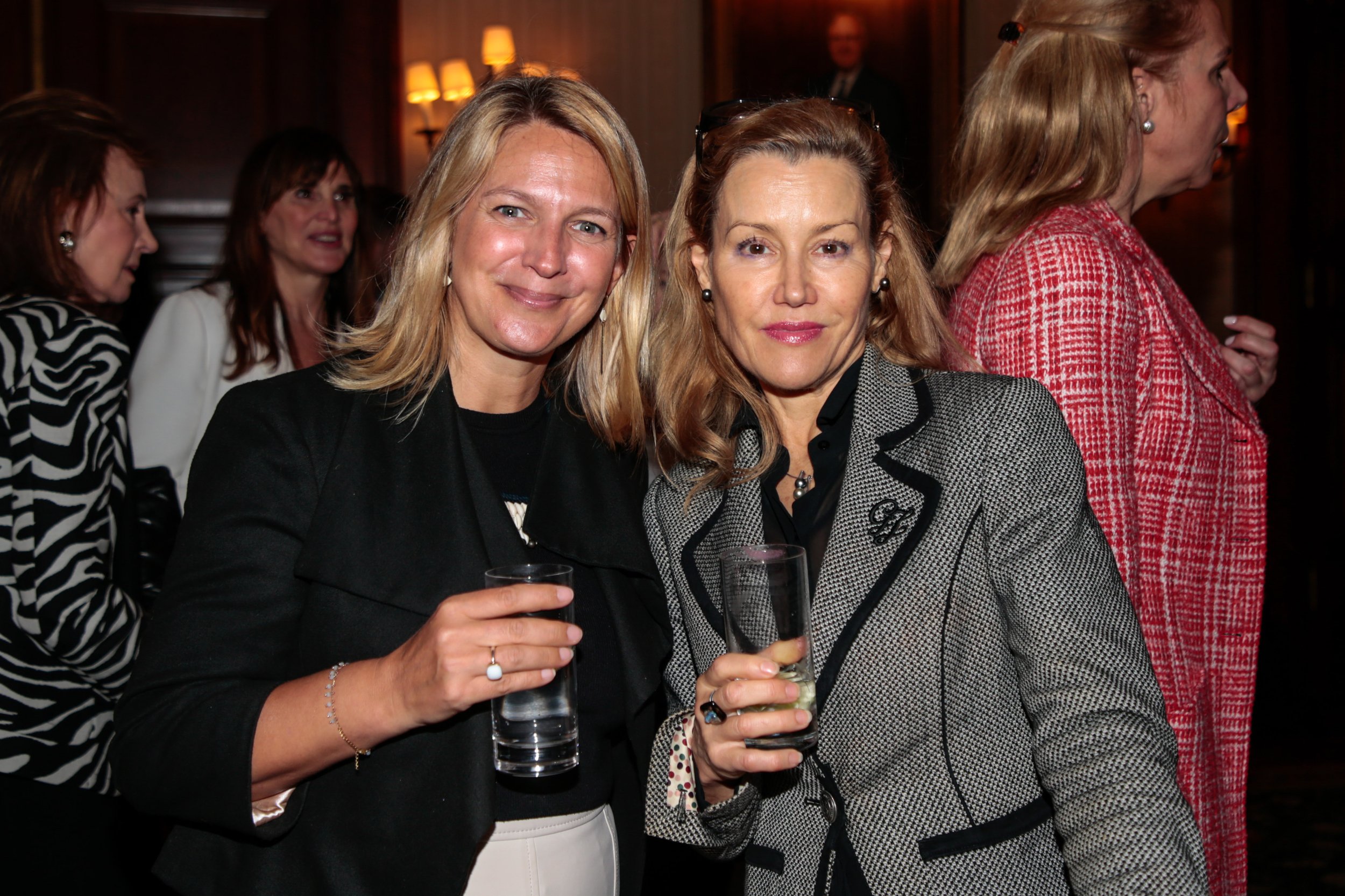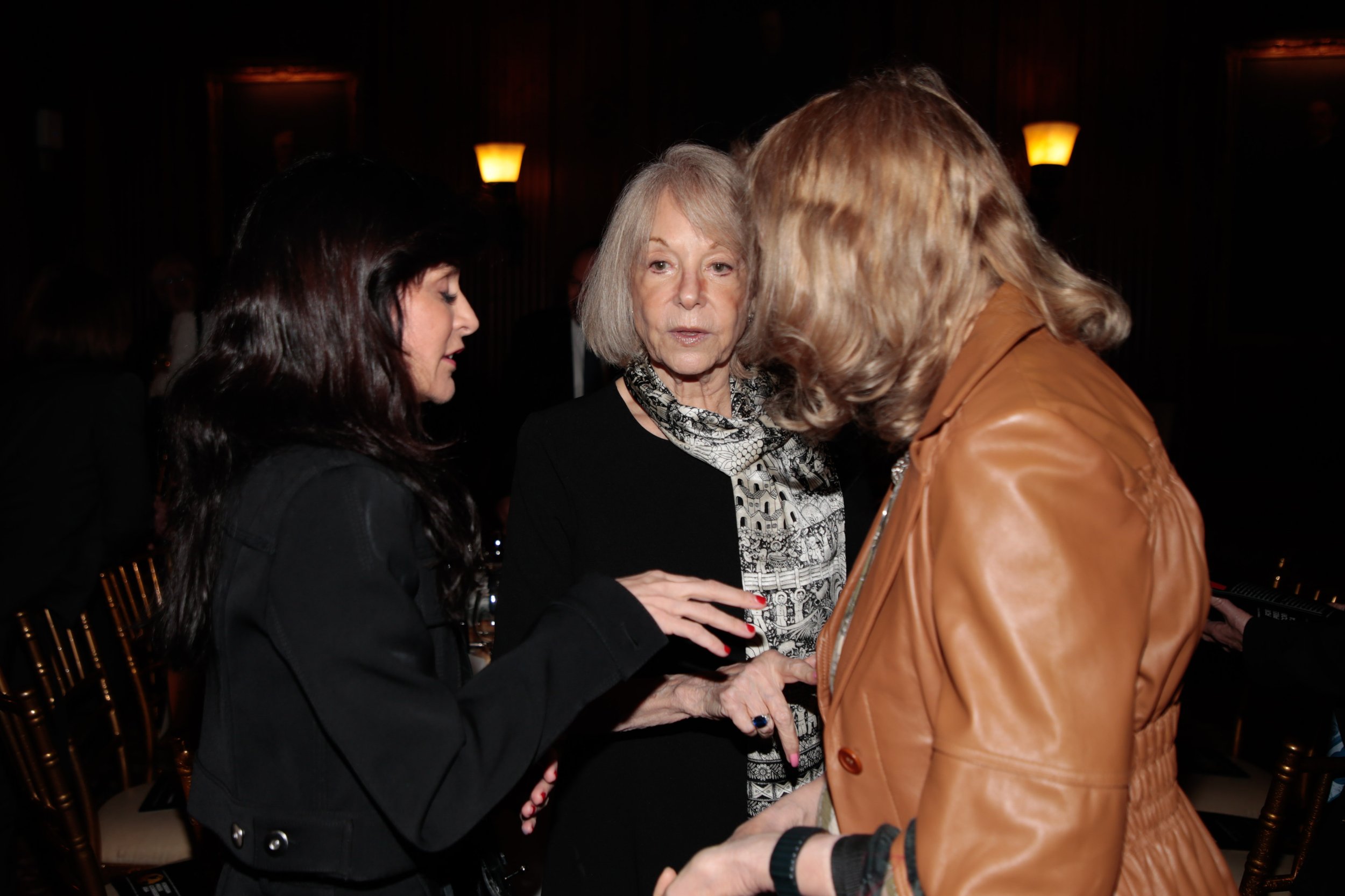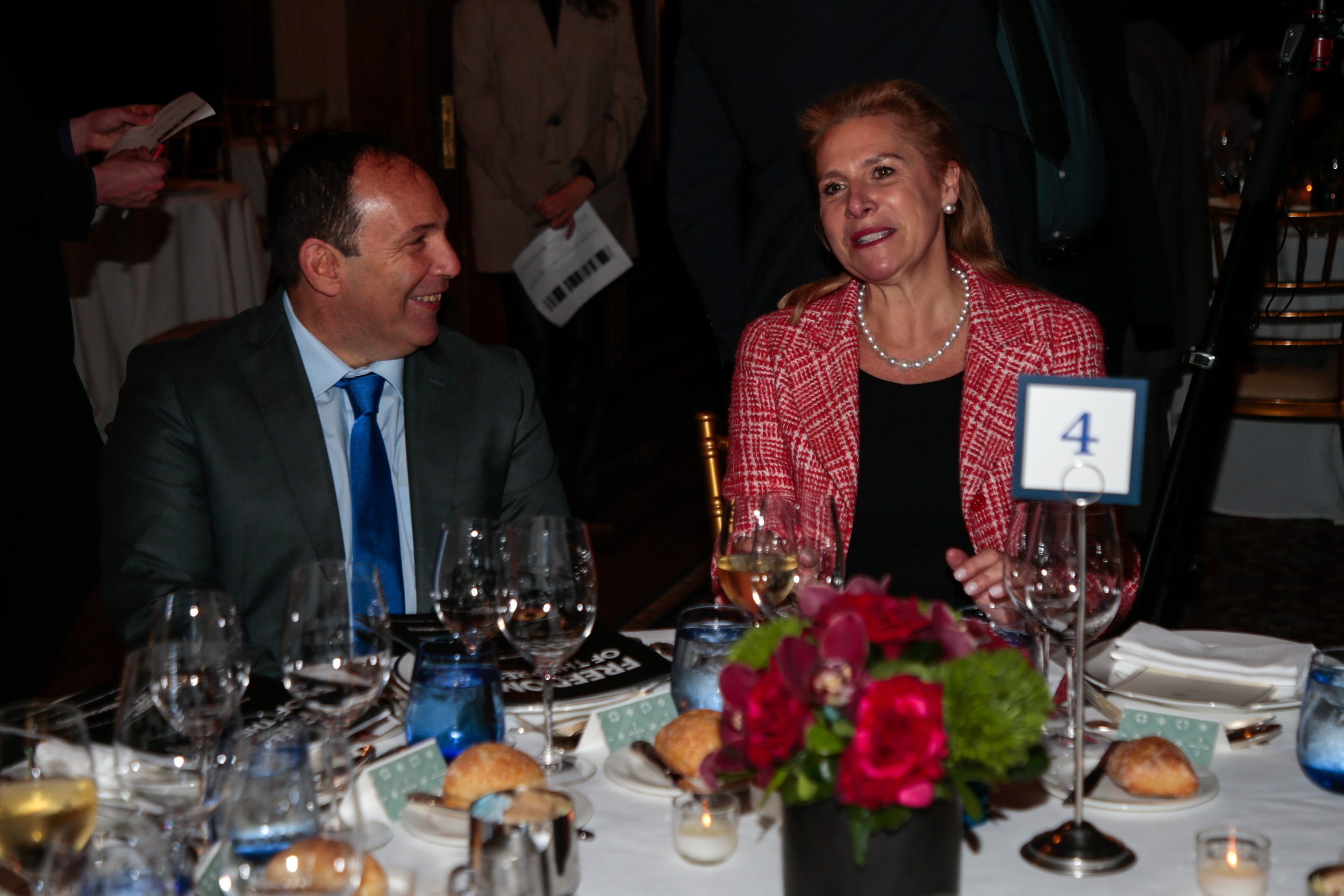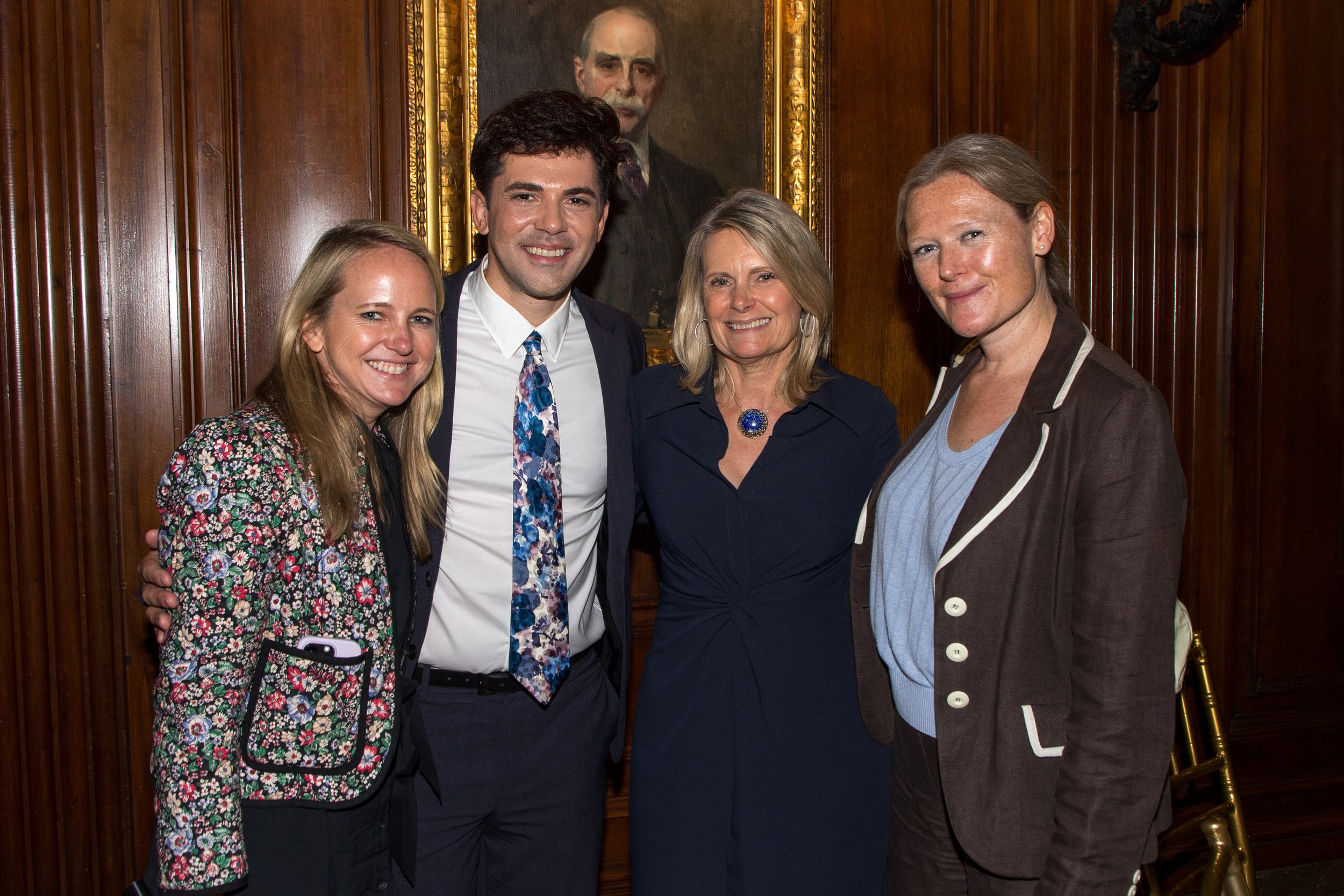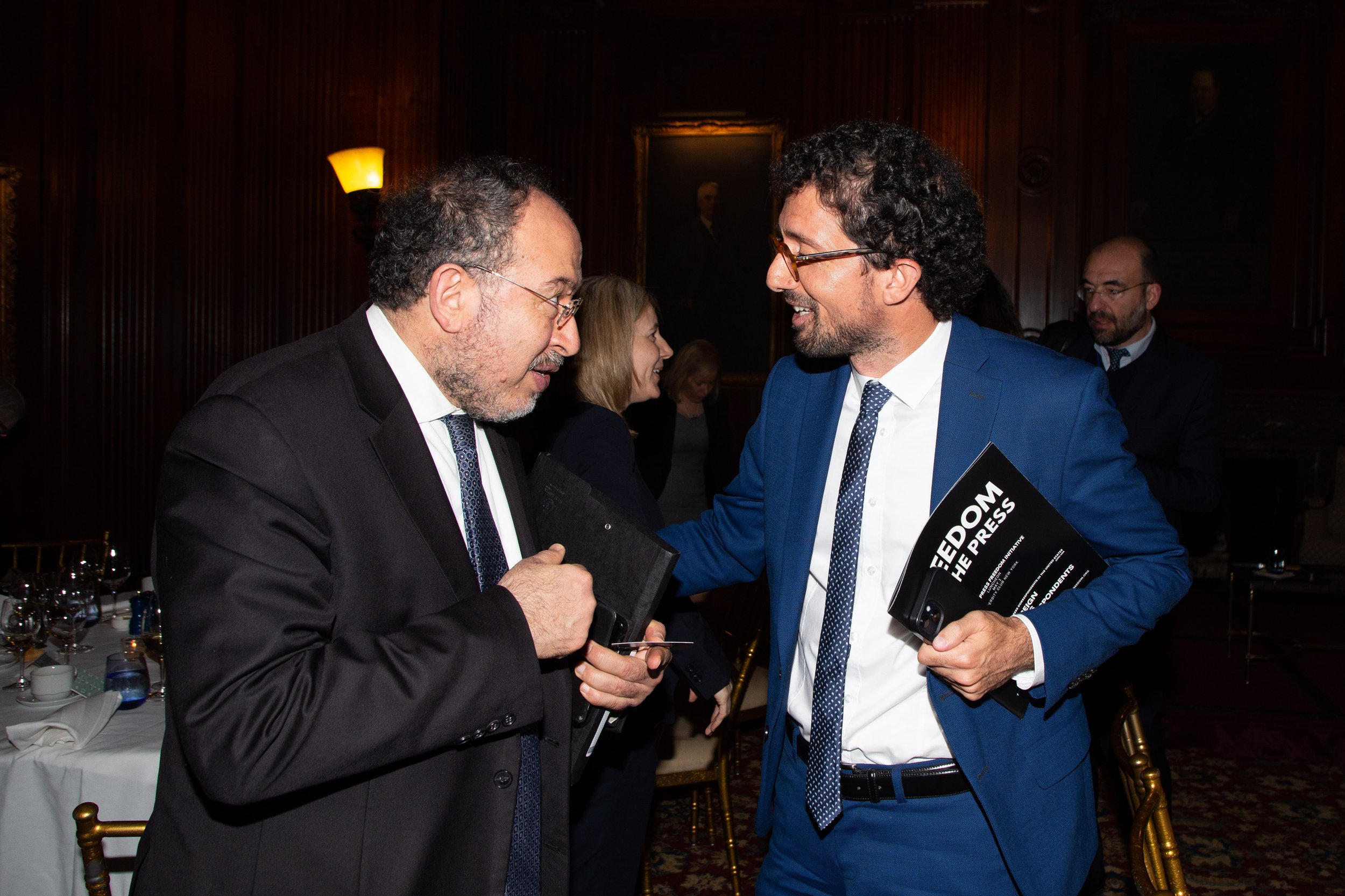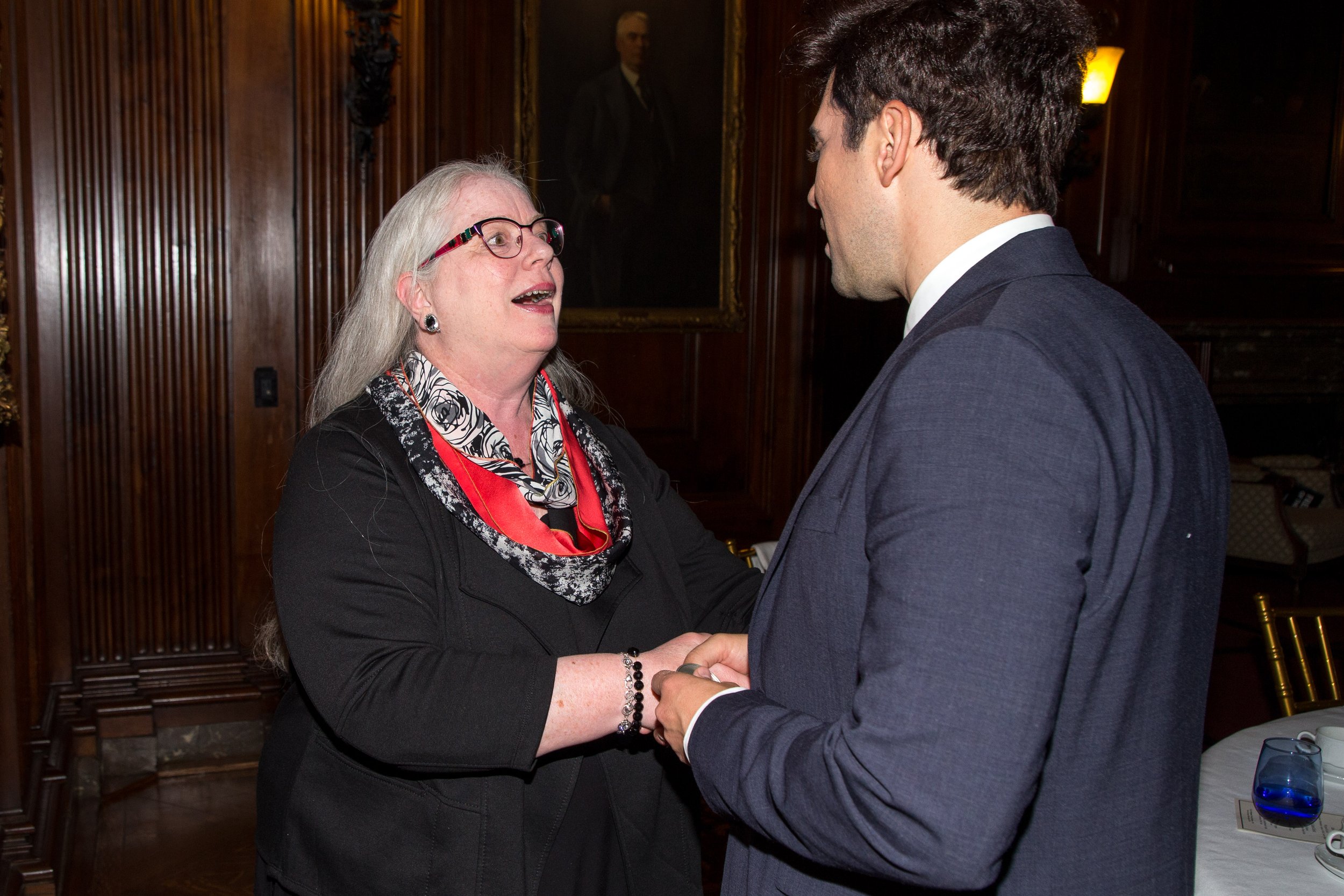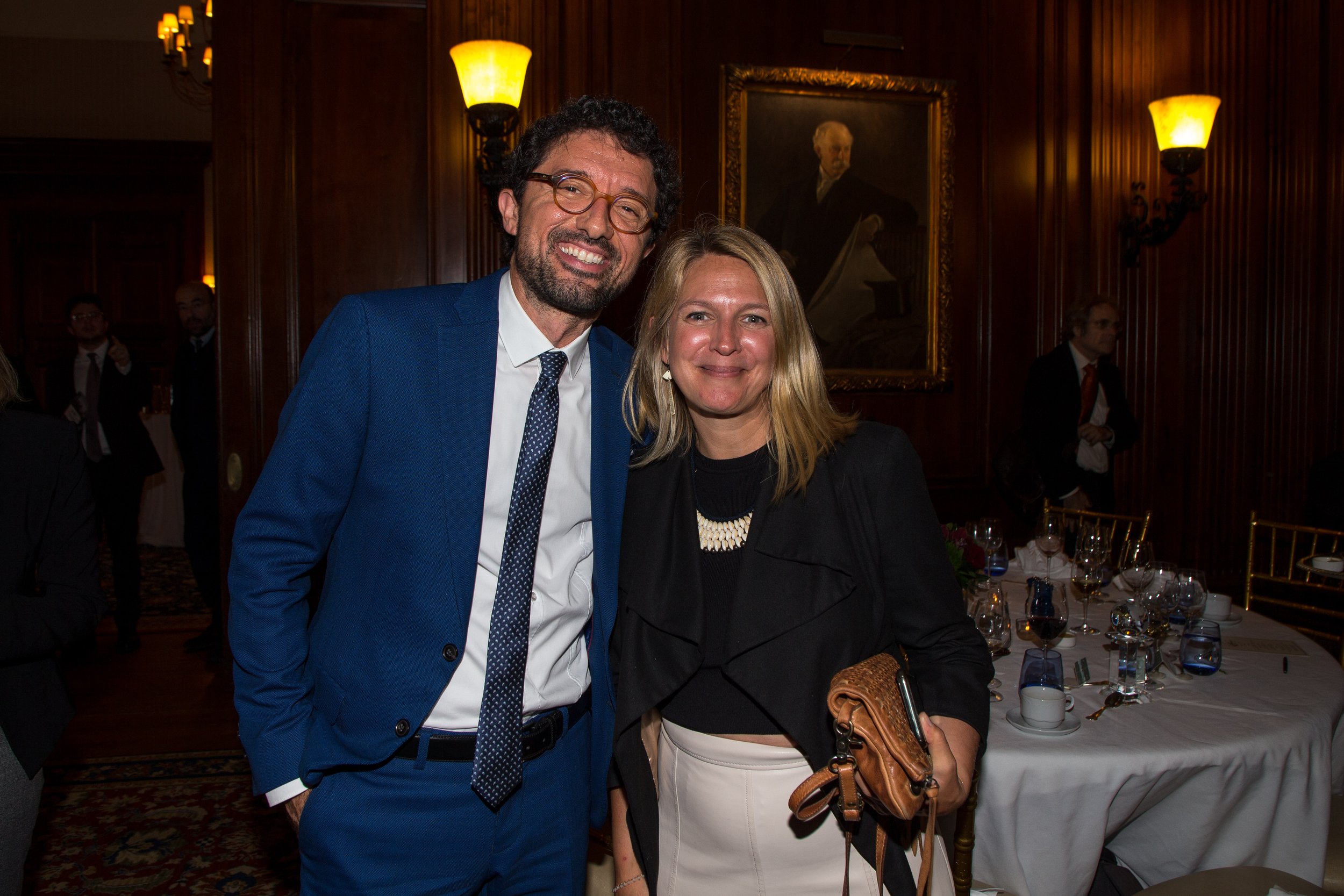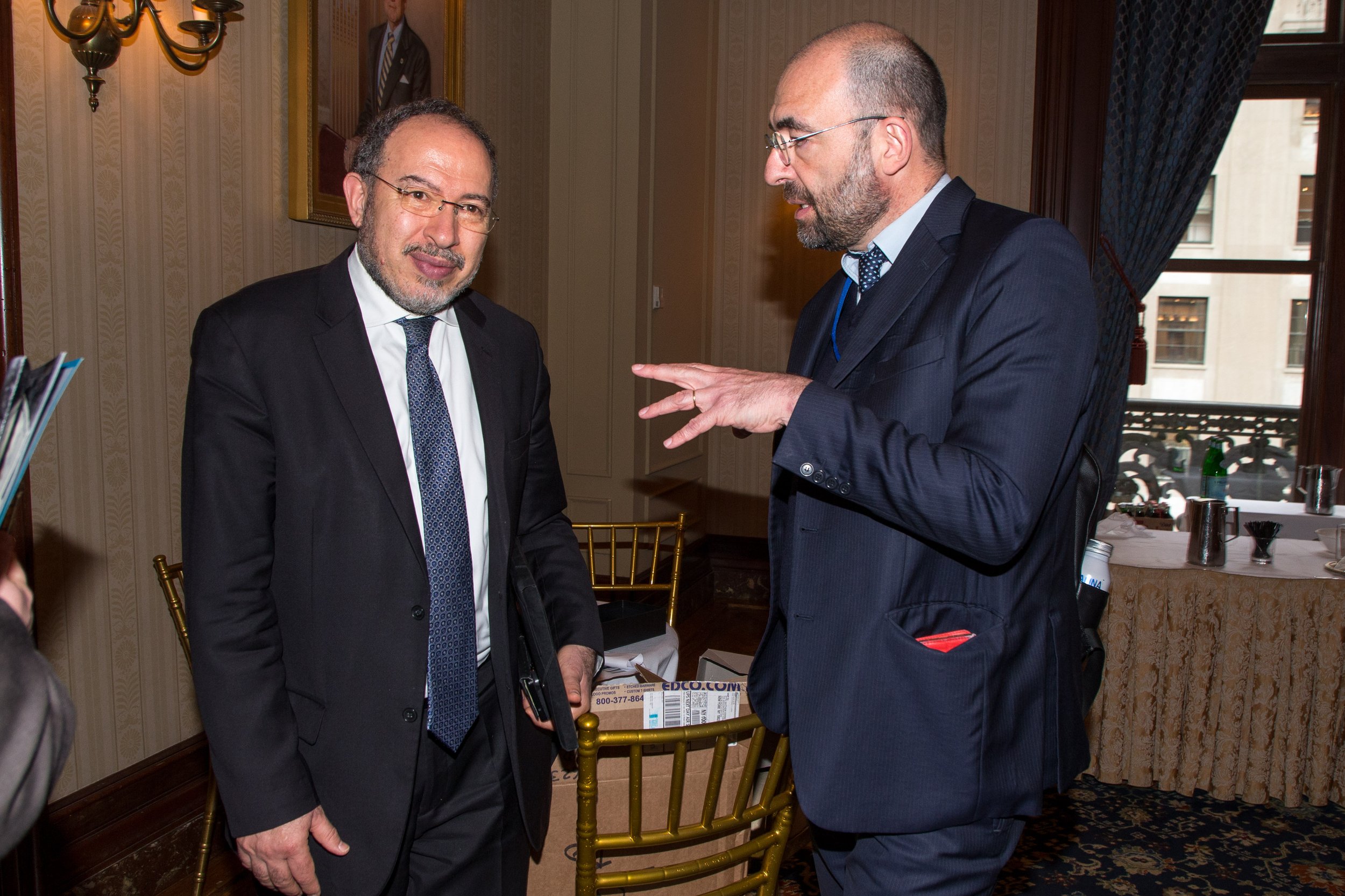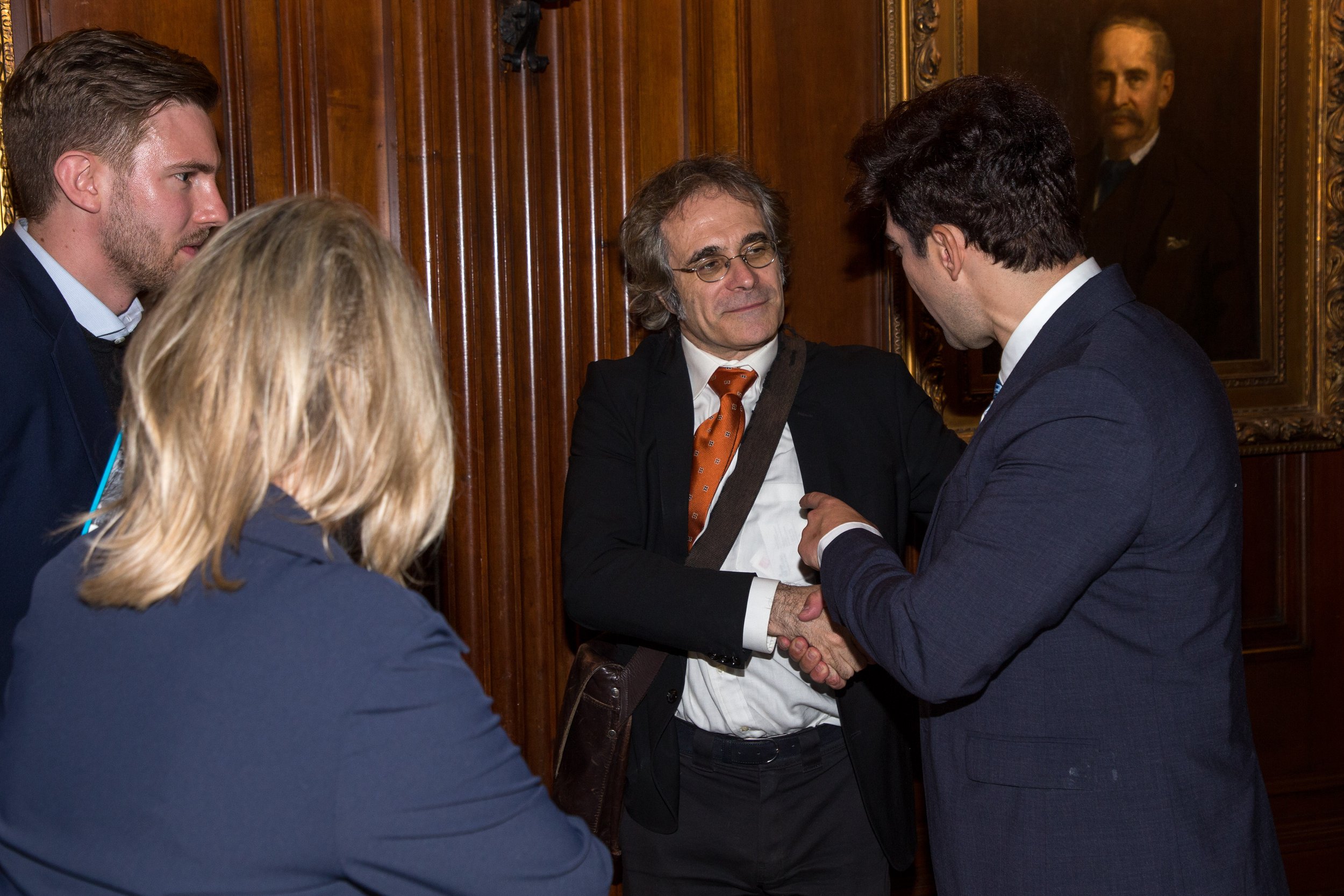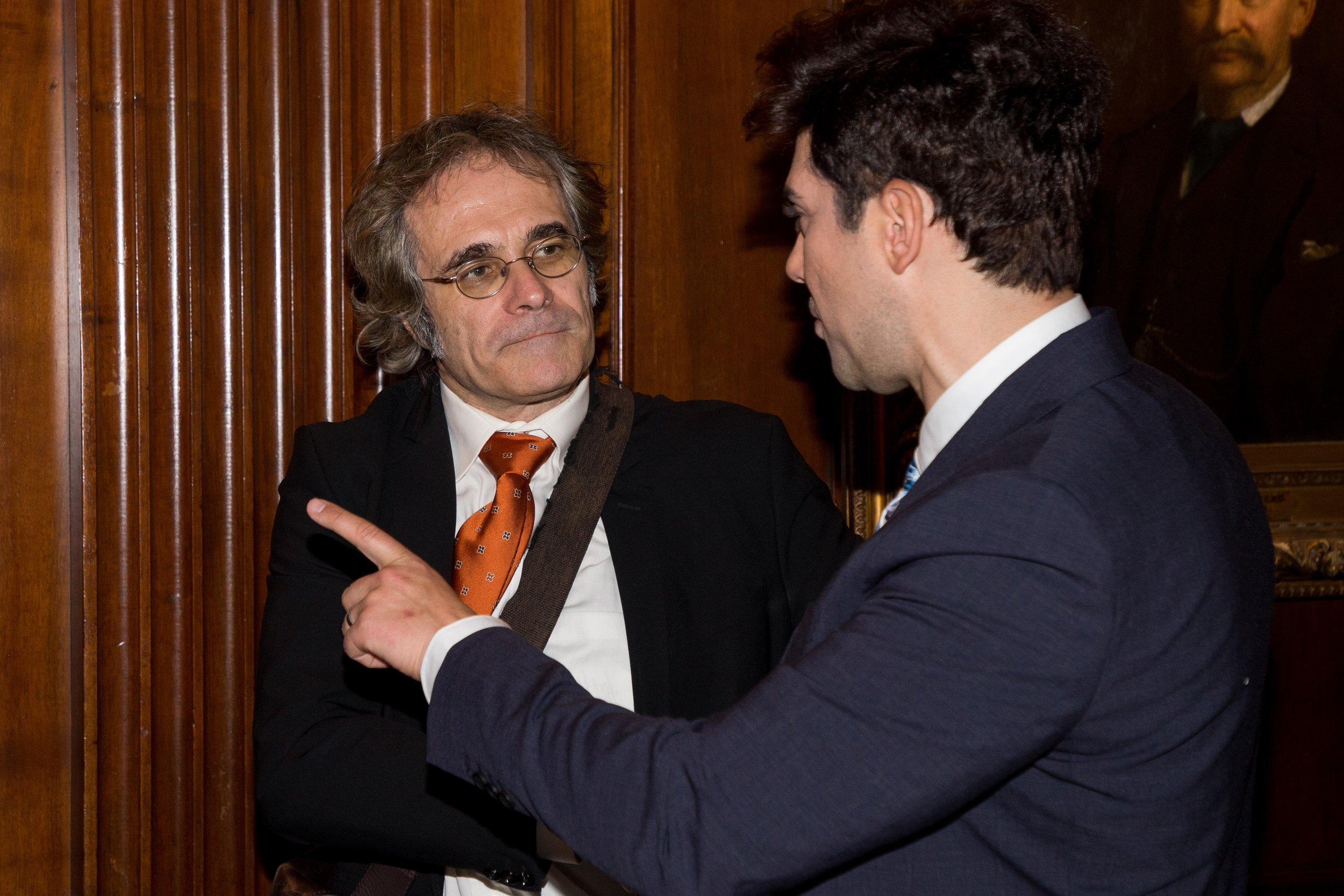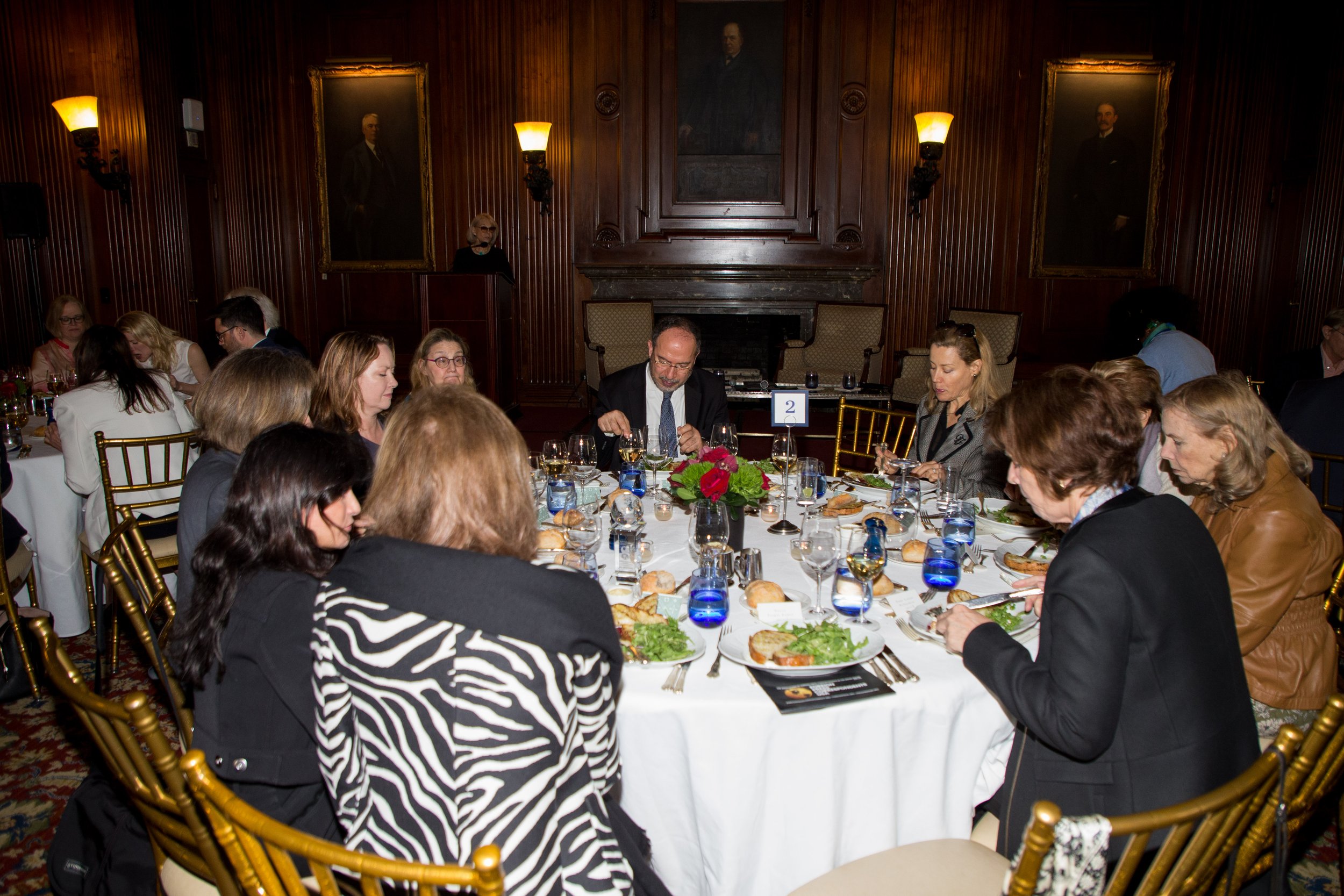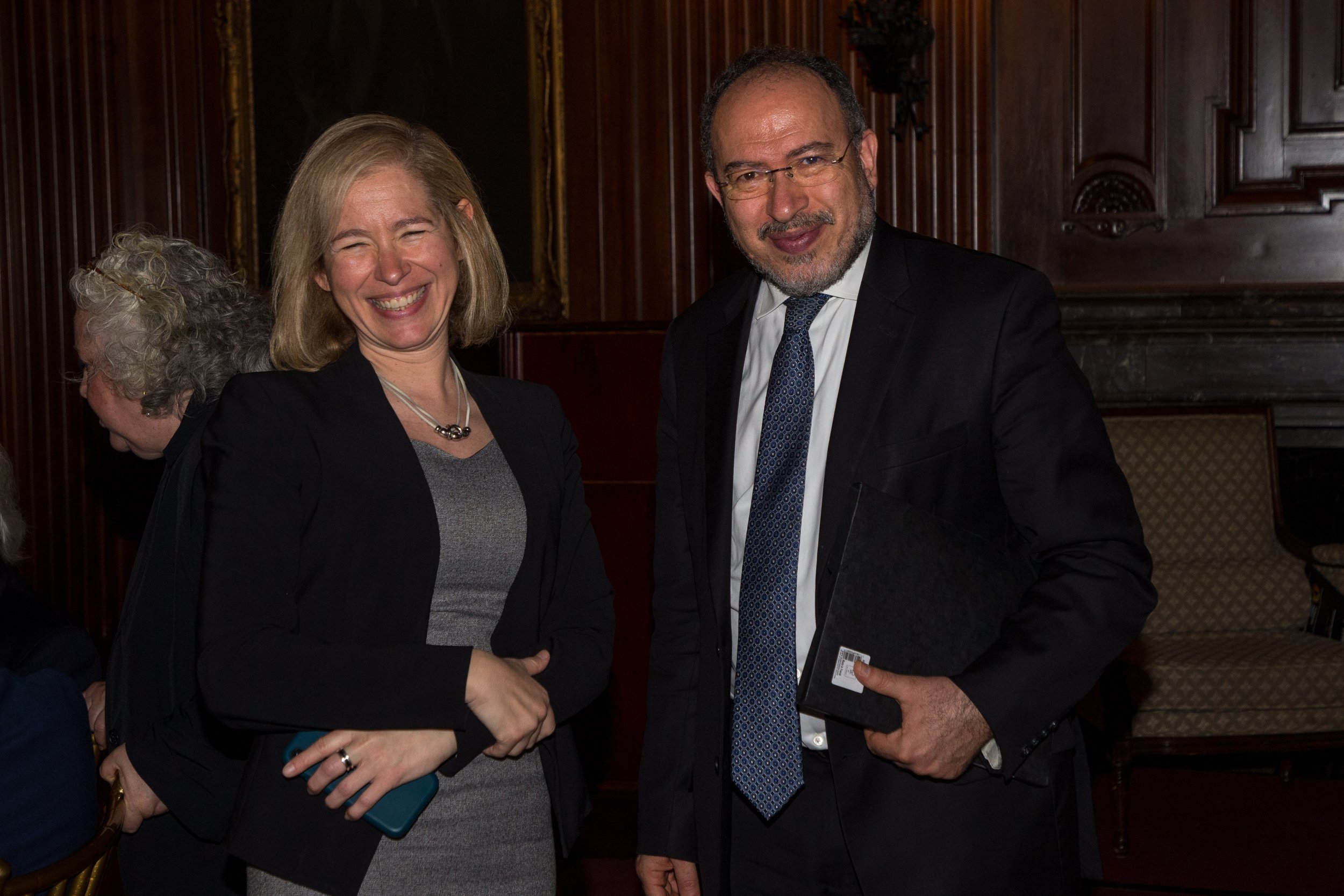The Association of Foreign Press Correspondents Hosted 2023 Press Freedom Forum

The Association of Foreign Press Correspondents in the USA (AFPC) hosted the 2023 Press Freedom Forum with media, business, government, UN, and NGO leaders this week in New York to mark World Press Freedom Day and raise awareness about new solutions to help journalists at risk.
The Association’s Chair, Nancy Prager-Kamel, announced Lally Weymouth, The Washington Post’s Senior Associate Editor, as the AFPC’s 2023 Press Freedom Award winner and welcomed Tawfik Jelassi, UNESCO Assistant Director-General for Communication and Information, as Guest of Honor at the Press Freedom Forum executive luncheon in Manhattan, attended by 60 experts and supporters from around the world.
In addition, the AFPC announced a grant of $10,000 for Quinto Elemento Lab, an independent, non-profit, Mexico-based organization that fosters investigative reporting aimed at empowering citizens, uncovering corruption, protecting journalists, strengthening accountability, and building a more just and transparent society.
The 2023 Press Freedom Forum included a series of roundtable discussions over lunch to brainstorm ways to protect members of the press facing an unprecedented range of threats, from killings to imprisonment, harassment, intimidation, censorship, and litigation. The discussion made clear journalists are finding new strategies for preserving press freedom and personal safety more effectively with innovative technologies, international collaborations, safety training, and advocacy campaigns.
The 2023 Press Freedom Forum included a series of roundtable discussions over lunch to brainstorm ways to protect members of the press facing an unprecedented range of threats, from killings to imprisonment, harassment, intimidation, censorship, and litigation. The discussion made clear journalists are finding new strategies for preserving press freedom and personal safety more effectively with innovative technologies, international collaborations, safety training, and advocacy campaigns.
But the threats to press freedom are real and deadly. In a panel moderated by Thanos Dimadis, Executive Director of the Association, Weymouth and Jelassi outlined the ever-increasing dangers journalists face around the world today. They are alarming, with 67 members of the press and media workers killed last year alone, the most since 2018--including 15 in Ukraine, 13 in Mexico, and seven in Haiti, the highest numbers recorded in those countries in decades.
During a second panel, AFPC Vice President Storer Rowley moderated a discussion on solutions for protecting media, with Quinto Elemento Lab’s Co-Founder and Editor-in-Chief, Alejandro Xanic, and global security expert Sam Levy, founder and director of Yubix, Irish-based technology company developing a product called Vertex Pro, which uses cutting edge features and real-time data to provide security for individuals working in high-risk field situations.
Xanic and Levy spoke of innovative solutions that may help improve the ability of journalists to avoid deadly risks. In Mexico, a country with the second-highest number of reporters and media workers killed last year, the Quinto Elemento Lab works to expose hidden stories and the “inequality, impunity, and corruption (that) continue to mark Mexico.” It also investigates “disappeared” persons and sponsors training programs to help keep reporters more secure.
Levy outlined how Vertex Pro could be an invaluable tool for journalists working in high-risk areas. The product has a risk-identification and mitigation module which identifies threats and irregularities that help individuals detect situations that could endanger their safety. The system also offers an emergency module for multiple scenarios to provide real-time options for key decisions on safety, escape or extraction routes, if needed, and a media module to send and receive images and video to authorities or the home office.
As events around World Press Freedom Day unfolded, they took place in the shadow of the recent arrest of Wall Street Journal reporter Evan Gershkovich in Russia while on assignment, and the false allegations of espionage he faces that have left him languishing in a Russian prison since he was wrongfully detained March 29.
James Kennedy, Chief Communications Officer and Executive Vice President at News Corp., the Journal’s parent company, said that Gershkovich is trying to keep his spirits up and is reading War and Peace. “Journalism is not a crime,” Kennedy told the AFPC executive luncheon. Mitzi Perdue, journalist and press freedom advocate, shared her voice about the need for journalists’ protection by addressing the 2023 Press Freedom Forum.
During roundtable discussions, table moderators took guests through a series of questions designed to gather ideas for practical solutions for trying to keep journalists safer, and several general themes and ideas emerged in the brainstorming among international journalists, media professors, UNESCO officials, NGO leaders, government officials, and business executives. The roundtable discussions were hosted and moderated by Nancy Prager-Kamel, Bob Rowley, Sissel McCarthy, Momoe Ban, and Oheneba Ama Nti Osei.
Here is a general summary of these suggestions:
Offer grants to help journalists in exile—from Russia and Venezuela to Iran or Nicaragua—set up shop more easily in the States or another country, or absorb them into Western news organizations. This could help some of the hundreds of Russian reporters forced to flee because of new laws there that prohibit journalists from telling the truth about the war in Ukraine. Governments should be encouraged to help by expediting their visas.
Partner in education efforts like UNESCO’s publishing a handbook for journalism education and training, titled “Journalism, ‘Fake News’ & Disinformation”. This could be a great example of what non-profits, NGOs, and some government-related organizations could do to support efforts to foster better journalism, free expression, and truth-telling.
Foster more international collaborative reporting models like Quinto Elemento Lab, the International Consortium of Investigative Journalists (ICIJ), or Forbidden Stories so that criminals, corrupt officials, or governments opposed to a free press learn that killing a journalist does not mean killing the story. Promote wider adoption of this model and have an NGO spearhead this, such as the Society of Professional Journalists (SPJ) or an international organization like UNESCO. Chief Communications officers from the business community also offered their expertise to secure funding and support for these initiatives. Journalists liked the idea of working with reporters from other news organizations and publishing the same story across borders and multiple platforms, as long as they weren’t direct competitors.
Use new technology, innovation, and cross-border solutions to help protect journalists, supporting and promoting grassroots programs for safety training, like Quinto Elemento Lab, or new technology that helps journalists operate more safely abroad, such as Sam Levy’s product with its risk mitigation and emergency evacuation modules—which drew strong interest and also some concerns about how it would work in a dictatorship.
Support a model like the Hannah Arendt Initiative, a German network of civil society organizations that, at the initiative and with funding from the German Foreign Office and the German Federal Commissioner for Culture and the Media, protects and supports journalists from Afghanistan, Ukraine, Russia, and Belarus who are under threat as they conduct their important work. While some non-profits might have legal or ethical issues taking money from the U.S. government, the model could work for some NGOs, providing training, scholarships, and exile journalism centers in nations where reporters are working amid danger.
Along these collaborative lines, set up pools of reporters from different outlets and nations operating in dangerous reporting environments: This was done in Sarajevo in the 1990s and was called the Sarajevo Agency Pool. There are many advantages to this approach: fewer journalists are in harm’s way, it saves money, and working together builds collaboration.
More broadly, set up Media Solidarity Centers: UNESCO is piloting this concept already for journalists in Ukraine and giving them an office, resources, and the equipment – including safety and protective gear -- they need to continue their work.
Work more closely in partnership with UNESCO to further positive outcomes and progress stemming from the UN Plan of Action on the Safety of Journalists, which just passed its 10th anniversary and has led to more mechanisms to help protect media at risk in more than 50 countries — while, obviously, so much more needs to be done. One smart initiative UNESCO does is to support the training of judges, for example, in these areas, to guard against criminalizing journalism, the use of intimidation and censorship to silence media or the filing of nuisance litigation like SLAPP lawsuits.
Advocate in Washington, D.C.--in Congress and with the administration--to have the U.S. government take more forceful action to punish or sanction other governments if they do not protect the press, or worse, stand by and do little or nothing to prosecute those who kill, threaten, censor and intimidate the press—or misuse judicial systems to attack freedom of expression. While sanctions can be effective and draw wide support (for example, sanctioning Russia after the Ukraine invasion), they also can be challenging to enforce or ineffective when promoting democratic principles in undemocratic regimes.
Advocate for stronger leadership on freedom of expression at the top: Make sure the Secretary of State brings up press freedom and individual cases in every meeting he has with foreign leaders, like the German Foreign Minister Annalena Baerbock, who reportedly does this in every meeting she has with a head of state or foreign dignitaries.
Hold governments accountable with initiatives like The Reckoning Project that documents violence and crimes in Ukraine by training veteran conflict journalists and researchers to gather legally admissible testimonies so that the voices of victims may be heard legally and effectively inside the courts of law.
Support more training of journalists in safety and hazardous environment courses--especially freelancers—teaching them how to assess risks and avoid particularly dangerous situations and how to deal with trauma.
Like Quinto Elemento Lab’s work offering psychological support to traumatized journalists covering violence in Mexico, there are models in the U.S., too, that could serve as opportunities for collaboration or partnerships. The Dart Center at Columbia University is a good one doing work to help journalists report on traumatic events with sensitivity and also counsel those media professionals dealing with the psychological trauma of reporting on violence and terrorism at home or covering conflict and war overseas. They are establishing an international community of qualified therapists trained to care for trauma-impacted journalists. They provide therapists with cultural competence and data security training, peer support, and referral pathways.
Cover the threats to freedom of expression in our democracies too. For example, do more reporting on the growing phenomena of “book banning” at public schools and libraries in the U.S. Explore how governments and states damage freedom of speech. Raise awareness and promote more coverage about what is happening and why, because it is very surprising that a democratic country like the U.S. is heading into this situation, something that happened elsewhere in the lead-up to World War.
Report more on journalists who are in prison or murdered—make these high-profile news stories like the widespread and constant coverage of Evan Gershkovich. Explain that attacks on journalists are an attack on everyone.
In addition to the Press Freedom Forum held May 1, The Association of Foreign Press Correspondents USA (AFPC-USA), in partnership with Columbia University’s School of International and Public Affairs (SIPA), Deutsche Welle Akademie (DWA), BBC Media Action, the Center for Media Assistance (CIMA), Global Forum for Media Development (GFMD), Samir Kassir Foundation honored the World Press Freedom Day by hosting an informative program on "Radical Approaches to Saving Journalism: A Global Perspective." The program was a participatory fishbowl session on radical approaches to saving journalism - stirred and peppered by a diverse group of experts worldwide. We brought together journalists, media freedom advocates, academics, and think tank experts who care about action and change. We listened to ideas and insights on the future of journalism with a particular focus on transitional and fragile countries. We looked at systemic solutions to the business model crisis and discussed what strategies are working to help journalism survive and thrive. The discussion was hosted at the WeWork offices in Manhattan, New York, with WeWork being a Press Freedom Partner and supporter of the community of international correspondents in the United States.
Storer H. (“Bob”) Rowley is a contributing writer for Washington Monthly and writes commentary for the Chicago Tribune, among other outlets. He teaches journalism at the Medill School of Journalism at Northwestern University and has co-directed Medill’s Politics, Policy and Foreign Affairs specialization for graduate students. He is also Adjunct Faculty at Northwestern’s School of Communication and a former Assistant Vice President of Media Relations at the University. Earlier, as an award-winning journalist, Rowley spent 30 years working for the Chicago Tribune (1979-2009), the last seven of them as national editor, and covered stories in more than 50 countries. He also served as a member of the Tribune’s Editorial Board writing about foreign affairs and defense issues, and before that, was a foreign correspondent for 12 years based in Mexico, Canada and Israel. He served as the Tribune’s White House and Pentagon correspondents in Washington, D.C. He has covered wars and conflict, natural disasters, human rights, politics, economics, culture, religion and the human condition around the world. He is Vice President and a member of the board of the Association of Foreign Press Correspondents in the USA.

















































































